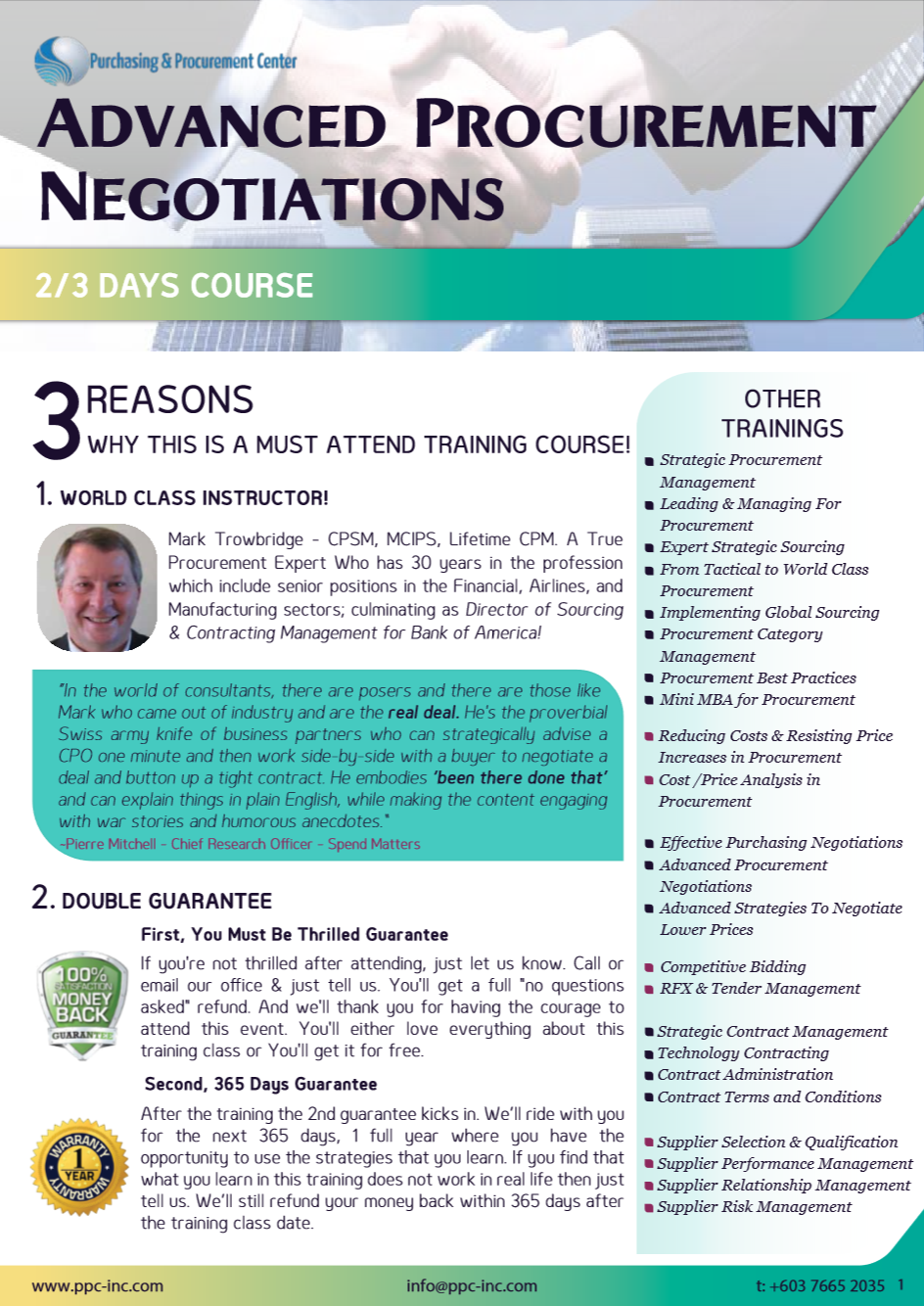Vendor & Supplier Negotiations
Vendor & Supplier Negotiations are based upon fairness, in that the buyer gets and supplier provides the right quality at the right price. Below we’ll outline how buyers think of suppliers, followed with a real scenario of how a buyer negotiated with a supplier. Finally, you will discover 4 important principles to use in vendor and supplier negotiations.
Suppliers: Are they Gods or Servants?
Depending where you live, suppliers are either seen as semi-Gods or as
servants that must act upon every wish of the customer. Let’s explain.
Based on our experience, in US generally Buyers feel that suppliers are
there to fulfill every wish they have. However, if you are in Asia,
Buyers feel that suppliers have lots of power and if you try to
negotiate prices you will get low quality goods and services.
However none of these is right. The suppliers and buyers need each other
– as a matter of fact suppliers/sellers need the buyer more. So the
suppliers must be seen as what they are: Sellers who want to get your
business, but who would not stoop so low as to ‘shine your shoes’ if you
ask them to.
Real scenario about vendor and supplier negotiations.
One company wanted to hire a consultant and his fee was USD 10,000 a
day. The company felt this was too expensive. The supplier/consultant
would only be present in certain meetings and help the buyer by
providing his opinion (so more or less he was being paid just to sit in
the meetings). But they needed this consultant since he was certified
and it was required by law to have such a consultant. So they were ready
to pay the fee, and were afraid to even ask for a reduction in the fee
since the consultant would refuse and they would be without a
consultant.
However one question was asked:
What would the company do, if the consultant died tomorrow?
The answer was quick: Oh, we have to go and find another certified consultant (and there were quite a number of them).
Once they realized this, they want back to the consultant and stated
that his fee was too expensive and that they would pay a lesser fee.
Apparently they also told him that if he died tomorrow they would have
to find another consultant, so he was not irreplaceable. And the
consultant accepted the lower price. If you have a supplier company,
remember that instead of dying they can go bankrupt.
So a very important principle in vendor and supplier negotiations is to
have alternative options/suppliers that provide the same quality of
goods/services. Let’s put down then 4 important principles in supplier
and vendor negotiation.
4 Principles when negotiating with suppliers
1. Have Choices before you negotiate with suppliers.
As just mentioned above, have at least 2 or 3 suppliers
that are competing for your job. If you have only 1 supplier quote, or if you
are stuck with a
sole or single source supplier, then it is difficult to
negotiate.
2. Understand the Price Quoted by the Supplier.
Second, you need to have a good understanding of the price
you are trying to negotiate. By this we mean that you know that the supplier can
still make a reasonable profit and still provide the goods/services to you
without decline in quality, speed and time. To do this you would need a good
understanding of
price and cost analysis.
3. Understand your positioning with the supplier.
If you are an important client to your supplier and if your supplier
stands to lose a substantial amount of revenue by not getting your
business (eg 10% or more), this will help tremendously in your
negotiations. No supplier will want to lose a long term client, even if
that means sacrificing few percentage points.
4. Resist Price Increases
Whenever you are ‘shot’ with a
price increase from the supplier, resist them. You can by default
say no, which will work in half the cases if the supplier is just increasing the
price without a real increase of his costs. Or you can simply ask them: Ok, I
would have to pass this cost increase to my customers as well, so please tell me
what do I say to them?
This question will help you and ensure that the supplier shows you how their cost increase affects your price.
To learn the tricks to successful negotiations with supplier, download the “Out-Negotiating Your Suppliers” Report by clicking here.




